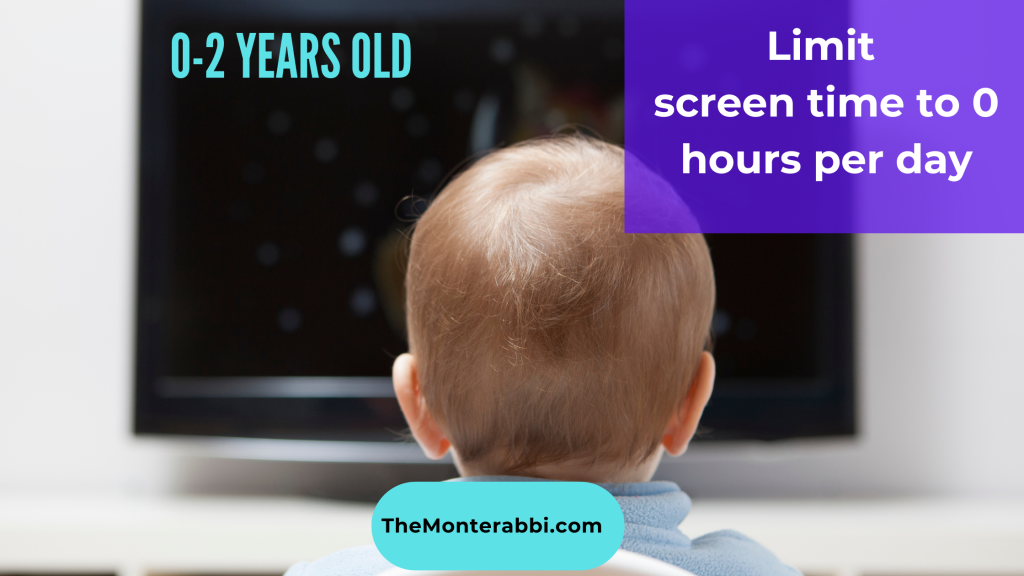Probably, you have heard that too much TV time is not the best thing for a baby—More so when used for playing video games or watching videos. Again, children do not learn much from the screen. As a parent or caregiver, it is good to check what your child is doing to ensure that it is something beneficial to h/her. From my testimony, your question on “Can too much TV cause speech delay?” will be answered.

Let me give you a personal story.
When my son was about 6 months old, he developed a keen liking for our smartphones.
He was a wailer. It seemed as though nothing would stop him from crying.
Yes literally everything. Apart from Cocomelon Youtube channel.
And so our home transformed into a Cocomelon home where that channel would play the entire time he was awake.
I do know almost all Cocomelon songs from listening to them so many times.
He would be glued to that screen for such a long time.
And if you dared take the phone from him, he would go at it again. Wailing.
Little did we know that this would end up having negative effects on his speech.
To be honest, I have a feeling of guilt remembering all this.
We only realized this when the speech-language pathologist we visited for his assessment said that he had virtual autism at 3 years.
And that if we continued with the Cocomelon, it would be really hard to reverse the effects.
End of story.

Let’s go back to what research says about too much screentime for kids.
Studies have shown that; too much screen time can hinder language development skills in young children. Again, it is much more difficult for a parent to monitor screen time with the increased accessibility of electronic devices. But as a parent, you can monitor your child’s screen time by setting an example with screen time and watching TV with your children when necessary.
This article is about too much TV in relation to speech delay. It seeks to explain the dangers of screen time in toddlers’ speech, how you can remedy too much screen TV, and the possible alternatives to too much screen time. Stick around to learn more about screen time and its relationship to speech delay.
Dangers of Too Much Screen Time in Toddlers Speech Development
What is Screen Time?
Screen time is any time your child spends with a screen in front of their face. Screens include tablets, phones, laptops, televisions, computers, movie theatres, DVD players, hand-held gaming devices, and any screen with moving pictures. However, despite being educational content or not, screen time is screen time, and its effects can significantly affect your child’s overall development.
According to the study done among children between six months and two years, toddlers exposed to hand-held screens for more time were more likely to have delayed expressive language skills, among other adverse effects. Meaning their ability to say words and sentences was delayed. Also, they found a 49% expressive language delay more risk for every 30-minute increase in hand-held screens daily.
Another study involving parents with children under two years found that toddlers watching more videos said fewer words. These children said six to eight words or fewer on average for each additional hour of videos that eight to sixteen months old watched in a day.
With these findings, it’s evident more screen time exposes your infant child to expressive language delay risks, which can lead your child to say fewer words.
Recommended Children Screen Time
The American Academy of Paedetriatics (APP) recommends the following screen time guidelines for 0-5years old children;
- 0-18 months, children should not engage in any screen time, excluding interactive video calls supported by adults, for instance, zoom and FaceTime.

- 18-24 months may take part in select high-quality and interactive programs
- 2-6years should engage in high-quality interactive programs for not more than one hour

- 6-12 years, it’s good to have consistency in time spent using media. However, you should monitor the type of media and how your child uses it. Ensure the media does not take the place of physical activities, adequate sleep, and other health-essential behaviors.
- Twelve years and above, you should designate media-free time together, dinner or driving time, and monitor their screen time—also suitable to have media-free locations at home like bedrooms.
However, you should note adult-supervised viewing is recommended for children between 18 months and 5 years. As you do so, discuss what you are watching with your child to help in interpretation and understanding the content.
How to Remedy Too Much Screen Time
Today screen time is common, but it’s good to reduce it since too much can be dangerous. To remedy too much screen time, you can;
Monitor your Child’s Screen Time
Too much screen time, according to the American Academy of Pediatrics(APP) media use plan and related reports links, leads to other problems like obesity and sleep problems. However, parents should keep watch of their children and help them balance between the digital and real world. More so ensuring screen don’t interfere with;
- Sleep: Your child can have tired and sore eyes due to lack of enough sleep. APP recommends that children not sleep with devices in their bedrooms, which are not limited to smartphones, computers, and TVs. Also, they recommend avoidance of screen exposure one hour before bedtime.
Also, it is not recommended to use devices past bedtime for shows or violent video games, which can interfere with sleep. Moreover, studies show that blue screen lights may interfere with sleep.
- Exercise: APP recommends 6 years and older children get 60 minutes of physical exercise each day. Active play is the best for children and gets natural light exposure in the process. Also, switching off the TV can help avoid eye and vision problems, which may result from too much screen time.
Frequent Breaks
Often, children get absorbed in what they are doing without noticing eye strain symptoms. It is good to remind them to take frequent breaks. Encourage your child to walk away for every screen hour for 10 minutes. A timer can help remind your child to do so. Some software programs can help turn off the screen in regular intervals if need be.
Correct Screen Positioning
Place the screen slightly below the eye level to ensure correct screen positioning. On the contrary, eyes may dry quickly due to wide opening if placed above eye level. Again, if using a small screen, you should set the font twice the size you can comfortably read to avoid eye fatigue.
Some experts suggest using the 1/2/10 rule, translating to one foot for mobile devices, 2 feet for laptops and desktops, and 10 feet for TV screen, depending on its size.
Screen Lighting
The correct room lighting level helps to cut down on eye fatigue and glare while using a computer or other screen. When using a screen, the lighting should be half what it would be for other activities.
Again, it’s good to position computers facing away from uncovered windows, lamps, and overhead light fixtures to avoid light shining directly on the screen. Which can lead to glares and eye problems in the long run.
In addition, if your child uses prescription eyeglasses, they can have another layer of anti-reflective coating. You may also consider using computer monitor hoods or shades attached to the screen.
Go for Regular Vision Screening
Your child may not speak up if they have blurry vision or similar eye problems. That’s when regular vision check-ups become essential. In case there is a problem, seek further help, instead of waiting to get worse results when it might be too late.
9 Creative Tips to Alternative Too Much Screen Time
Sometimes, as a caregiver or a parent, it’s good to think out of the box and come up with ways your child can minimize the time taken staring at their device of choice. Here are some ways you can disconnect the screen without the “am bored” phrase.
However, kids and teens can be tricky and cheeky sometimes. If need be, you can be a bit strict on screen time for your kids. And with time, you will notice they’ll adapt to your preferred screen schedule.
1. Get Your Children Out of the House
It doesn’t matter what your kids do outside the house, so long as they burn off excess energy. While outside, your kids can shoot hoops, run, take a bike ride, skate on a board, dig in the garden, chalk draw, or go on a photo scavenger hunt.
2. Ask Them to Help Around the House
Appeal to your kids that they can do different house chores like sweeping, washing the floor, dusting, or folding the laundry. You can broaden the house chores to running a load of towels, making dinner, or loading the dishwasher for teens and tweens.
3. Engage in Crafting
Sometimes messy is cool. You can encourage your children to make a collage, create colorful masks, or cut out paper garlands. However, older kids can choose crafts that don’t look stupid. They can make embroidery floss friendship bracelets, cover their bedrooms walls with their favorite photos, draw comics, or make necklaces and earrings.
4. Fort Building
Forts are fun for kids anywhere from 2 years to early tweens, though you won’t be able to walk through the living room. You can make forts from dining room chairs, bedsheets, and clips. Also, a large fridge and dishwasher cardboards can serve the purpose before you discard them.
To make them give our children markers, colored duct tape, stickers, and anything else they need. You can make it more fun, serving them lunch and dinner there.
5. Board and Puzzle Games
Jigsaw puzzles are an excellent way for children to entertain each other. Again, jigsaw games are appropriate for children of all ages with appropriate piece sizes and counts. But be prepared for mild to moderate bickering competitiveness. If you want to go beyond, explore games like “bugs in the kitchen,” “Doodle Quest, and Flashlights & Fireflies.
6. Allow Them to Cook Cupcakes, Cookies, and Cakes.
Young kids are always excited to assist in the kitchen, and older ones can scour cookbooks or use their limited time to get a recipe or two to try out. Maybe a banana bread or sugar cookie. Let them be creative and adventurous as they can.
7. Read and Write
It would be best to do this trick differently from the school sense. In your child’s downtime away from the classroom, help them order a book they can get lost in or two from an online store. You can also ask them to write a letter to their favorite aunt, grandmother, or a friend they are missing.
8. Be Creative with What They Already Have.
Probably, you have some toys or projects that your kid has not used in a while. Maybe a toy they got on their birthday, or one that has not been used for a long time. You can use that time to revive their memories and enjoy the moments.
9. Be Realistic
If your children spend more time of their leisure time on screens like TV, start setting them smaller and more attainable goals, rather than jumping directly to your recommended one or two hours per day.
You can cut their current TV time by half, then reduce it more with time.
Can Too Much TV Cause Autism?
Autism is a broad range of conditions shown by repetitive behavior, social skills, speech, and non-verbal communication challenges. Some causes of autism include family history, genetics, and premature babies.
However, studies have shown that excess TV or screen time in toddlers and babies can cause developmental delay and other behavioral issues. Other studies have tried to show too much TV time as a cause of autism in some children—especially those that started below 6 months. But, you should note that the correlation doesn’t mean cause.
The findings seem to recline towards the “yes” side, according to various research. To mean that too much TV can lead to virtual autism. One of the findings is that children with autism have higher screen time exposure than their peers.
Another study in America looked at the correlation between autism and screen time. Their finding showed increased autism cases where television was watched more often.
In addition, a comparison study between children with autism spectrum disorder(ASD) and children without the disorder found that children with ASD started watching TV 6 months earlier than the children who didn’t. With the average findings of 6 months when the children started watching TV.
With these findings, it is good to eliminate TV and other screens as soon as possible gradually. Also, if your child is not yet used to screens, it’s good to engage in other activities. Moreover, you should not be very sure that too much TV can lead to autism since these are research findings and NOT proven facts.
Why is Cocomelon Bad for Babies?
Most probably, if you have a child below 3 years, you’ve heard about “Cocomelon.” The program is about the life of a toddler(JJ), which is presented through songs, constant camera movement, bright colors, and its characters have huge eyes.
The songs models being nice to animals, positive behaviors, and good manners. This show is popular with toddlers, not for bigger children or adults.
Cocomelon is Addictive for Babies
According to the experts, Cocomelon acts as a stimulant to children’s brains. Whereby the show is hyper-stimulating for the child’s developing brain. Somehow, impacting on the child’s brain not to play without such stimulation. When on the screen your child’s dopamine hits the brain, where the stronger the “drug,” in this case, it’s the program stimulation, the stronger the “hit.”
Some of the reasons why your child may be addicted to the song includes;
- The program has realistic 3D animations
- Use of repetitive nursery rhymes that stick in your child’s head for long
- Use of bright colors
- Provide multisensory experience without being overwhelming
- Constant movements and activities on the screen
Effects of Cocomelon on Your Child
If you want to know whether your child is addicted, you can try to switch off or delay switching the show on. If they show meltdown endlessly until you switch the program on, that shows addition and not “love.” Also, when watching the program, your child turns into a “zombie,” so you should note that it is not “rest” but “overstimulation.”
Your Child Experiences Symptoms of Addiction and Withdrawal
With the addiction, the program leaves your child dysregulated, meaning h/she has a poor ability to register emotions, regulate their emotional responses, and maintain their reactions within a socially acceptable range.
General Discomfort with the Everyday Speed of Life
What this means is the more your child watches Cocomelon’s program, the more h/her brain expects to get the same kind of stimulation—making it difficult for them to play creatively without entertainment.
Further, the researchers are unsure of the long term effects of stimulating shows like “Cocomelon” and the catchy “baby shark doo doo doo song. The latter is believed to cause speech delay. However, as a parent, it’s upon you to monitor your child’s behavior and decide if you like how it is affecting their brain.
In conclusion, your child will learn to communicate through interactions with people, despite all the new technology that may come your way. During the first years of your child’s life, h/her brain is very receptive to learning a new language and building communication pathways they need for the rest of their lives.
Once the chance is gone, it might be challenging to learn and develop language skills later, explaining why it is difficult for an adult to foreign language. Instead, you can use every minute your child takes in front of the TV to interact and practice communication.
If your child must use TV, let h/her use within the recommended time, and embrace proper remedies to avoid eye damage and other harmful effects. Also, you can use alternative methods to keep your child engaged rather than sitting in front of the TV. Lastly, it’s good to monitor your child’s program to avoid adverse effects like addiction and “zombie” like characters.



